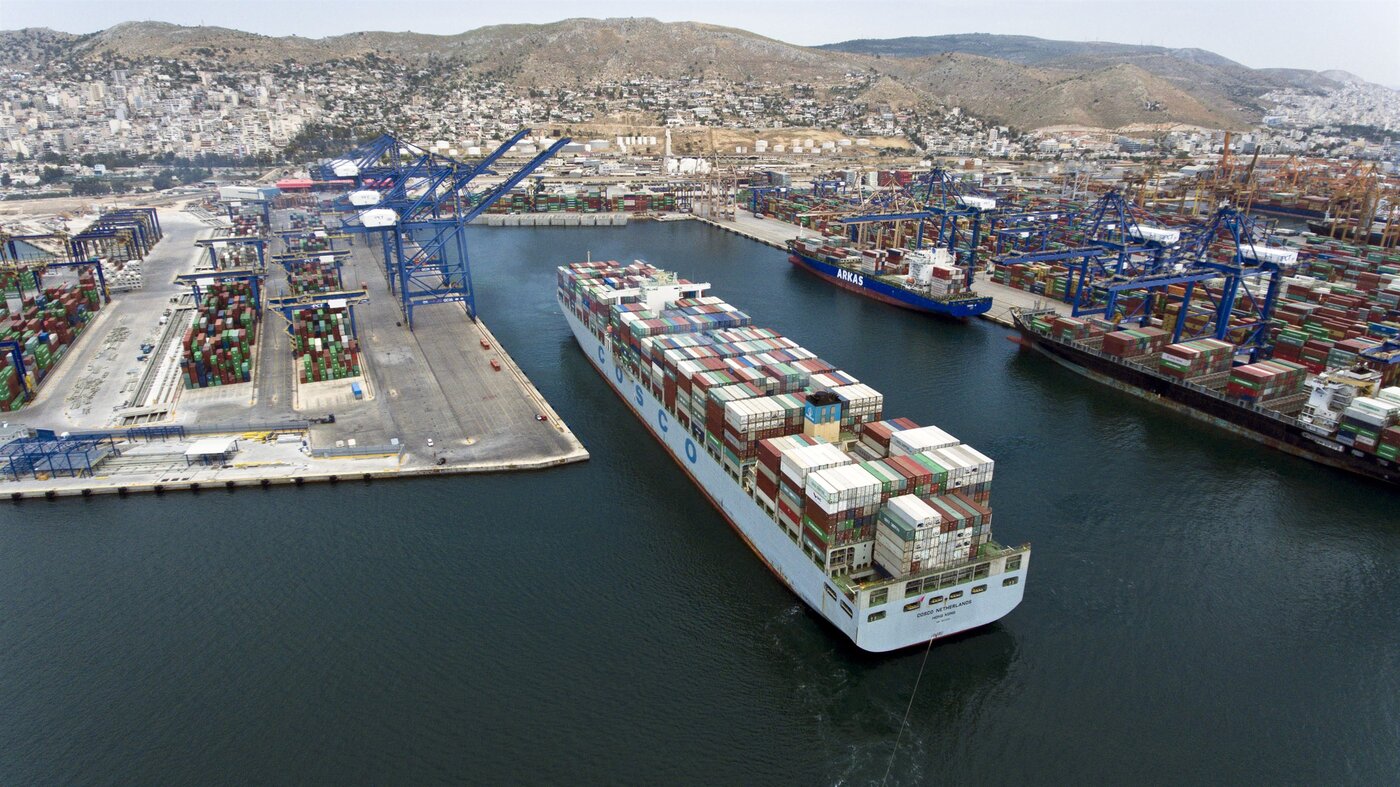[You need to register -it’s free- for reading the linked article or you can use the link in 12ft.io.]
Concerns about China’s government gaining insight into the operations of foreign governments, segments of the economy, or citizens have been sufficient to cause the US House of Representatives to pass legislation requiring the sale of a social media platform or face a ban from US app stores. And a few experts have warned the European Commission of the risks entailed by Chinese state-owned companies owning infrastructure in the 27 member states. But oversight mechanisms the EU has put in place to guard against outside influence have not been enough to keep China’s Cosco and CMG out of major European ports.
When Jacob Gunter, an economic analyst at the Berlin-based Mercator Institute for China Studies (Merics) heard about the 67 per cent controlling stake Cosco had managed to amass in Piraeus by late 2021, it set alarm bells ringing. “It seems bizarre to me that Cosco has managed to take complete control of a strategically located European port,” Gunter said. “Being dependent on a foreign power is always risky – we learned that after the Russian invasion of Ukraine,” when Moscow threatened to cut off its outsize share of the European energy supply in response to sanctions.
Shanghai-based Cosco owns 496 container ships and has 17,000 employees worldwide (including subsidiaries), which makes the state-owned company the fourth largest shipping company after Mediterranean Shipping Company S.A (Switzerland), A.P. Møller-Maersk A/S (Denmark) and CMA CGM (France).
Together with the Vienna Institute for International Economics, Merics was commissioned by the European Parliament to analyse Cosco and CMG’s acquisition strategies for critical infrastructure in Europe. Gunter found that state-owned companies’ interest in the Union is not limited to Greece. The 2023 report he co-authored determined that Cosco and CMG together have invested more than 9 billion euros just in the maritime infrastructure of member states, including the Netherlands, Belgium, France, Spain, and Greece.



Maybe I can shine some light on @bungalowtill@lemmy.dbzer0.com’s remarks.
Merics has been heavily criticized by the Chinese government almost since its inception in 2013 (I have my personal opinion on the reasons for that, but let’s keep that aside, I report the facts).
In 2018, for example, the Chinese propaganda outlet Global Times published an article about Merics, heavily attacking the insitute. You can find a brief comment about that as well as an English translation of this article here (archived link to ‘The China Media Project,’ another good source). If you read through the Global Times text, you may recognize where @bungalowtill has their arguments and wording.
In 2021, China imposed sanctions against 10 European individuals and four organizations in retaliation for the European Union’s sanctions on four Chinese officials for their role in carrying out human rights abuses in China’s Xinjiang region. Merics was among the sanctioned. China’s move has been heavily criticized, e.g., by the Center for Strategic and International Studies (CSIS).
The linked study has been conducted by Merics and the Vienna Institute for International Economics. These are two excellent research organizations. There is absolutely no doubt about their academic capabilities and their ethics.
Hold on, you are shining a light on my remarks by stating the Chinese government‘s line? Want to imply that thing here? Just as a reminder, I am not the one throwing what have you at the wall hoping for something to stick. Day in day out.